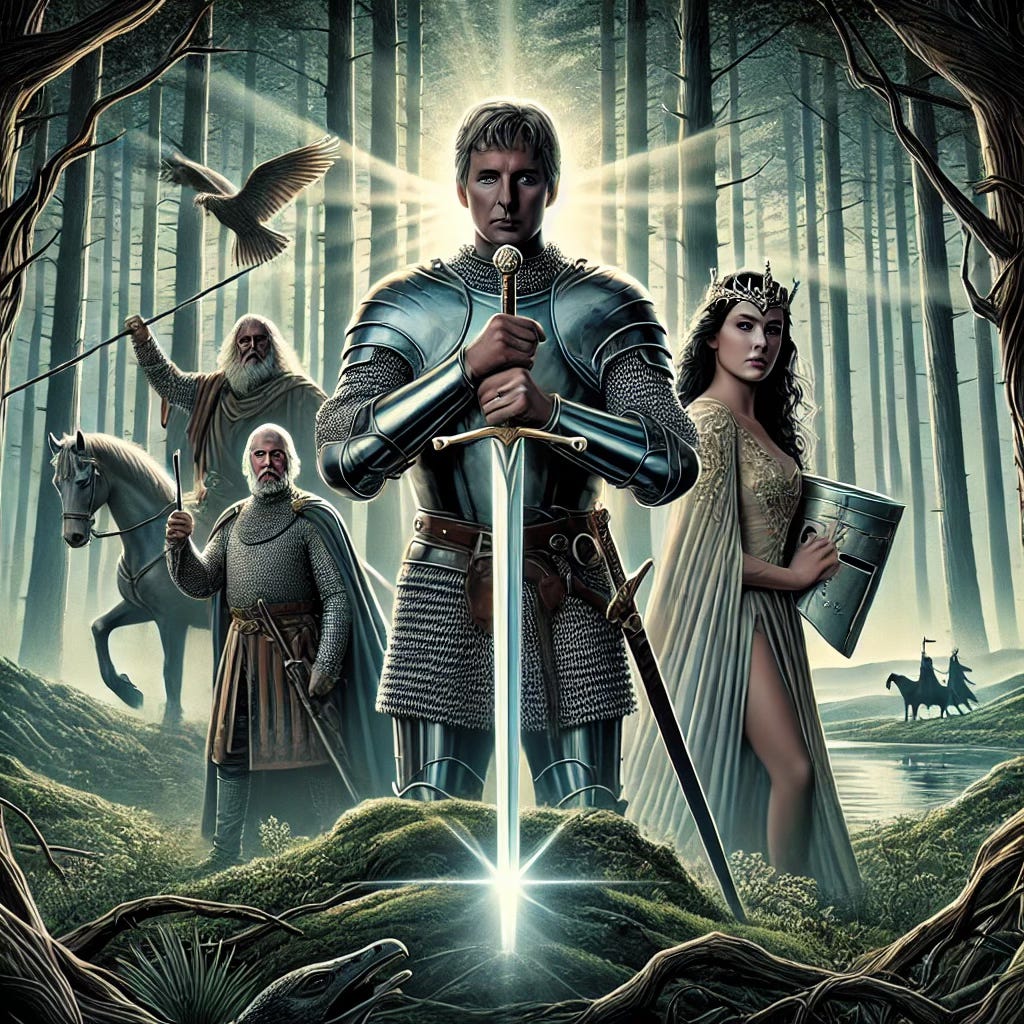Flashback Movie Review: Move Over, Rome -- Why Excalibur Deserves Your Obsession
John Boorman’s 1981 epic is not just a movie—it’s an experience.
By WOPR
While the internet chuckles about men pondering the Roman Empire over breakfast, a different legend waits, sword gleaming in hand, ready to claim its place in our daydreams. Camelot, the mythical realm of King Arthur and the Knights of the Round Table, captures something deeper—a yearning for ideals, a belief in magic, and a tragic understanding of human frailty. No film brings these elements to life with more style, passion, or sheer cinematic bravado than John Boorman’s Excalibur.
From its opening moments, Excalibur announces itself as something extraordinary. The film doesn’t feel like history or fantasy—it feels like myth, with all its grandeur and heartbreak. Boorman crafts a world bathed in light and shadow, where the mystical glint of Excalibur is as real as the mud under a knight’s boots. Every frame is alive with texture, from the verdant greens of Avalon to the cold steel of Camelot’s battlefield. This isn’t a mere retelling of Arthurian legend; it’s a plunge into its very soul.
And what a soul it is. The film pulses with characters so vivid they could step out of the screen. Nigel Terry’s King Arthur is both fragile and formidable, a man learning what it means to bear the weight of a kingdom. Helen Mirren’s Morgana seduces and schemes with an elegance that makes her betrayal sting all the more. And then there’s Nicol Williamson as Merlin, a figure at once cryptic and captivating, his voice a spell in itself. Together, they form the beating heart of Excalibur—humanity and magic intertwined.
But what elevates Excalibur from a great film to an unforgettable one is its emotional depth. This isn’t just a story about knights and kings; it’s about dreams and their inevitable collapse. The betrayal of Guinevere and Lancelot isn’t just scandalous—it’s devastating, a crack in the foundation of a dream too perfect to last. Mordred’s rebellion isn’t merely rebellion—it’s destiny catching up with those who dared to believe in a better world. And through it all, the sword Excalibur gleams—a symbol of hope, power, and the burden of ideals.
The film’s music amplifies every moment, with Carl Orff’s thunderous “O Fortuna” lending apocalyptic grandeur to the battles and Trevor Jones’s compositions weaving a thread of melancholy through the quieter scenes. It’s a score that doesn’t just accompany the story—it embodies it, carrying the audience through triumph and despair with equal force.
To watch Excalibur is to step into a world that feels both ancient and immediate. It reminds us that myths aren’t just stories we tell about the past—they’re reflections of who we are, what we strive for, and what we fear. Boorman’s film captures this beautifully, offering not just a window into Camelot but a mirror for our own aspirations and flaws.
So, as you scroll past memes about the Roman Empire, consider giving two hours of your life to Camelot instead. Let yourself be drawn into a world where magic is real, honor matters, and even the greatest dreams come with a price. Because Excalibur isn’t just a movie—it’s a legend brought to life, a cinematic experience that lingers long after the credits roll.




